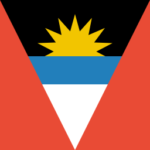Fees for registering India trademarks
Service Process
Trademark registration time
The current trademark regulations in India are mainly based on the Trademark Law, which came into effect on September 15, 2003 and was revised on March 6, 2017. The Indian Trademark Office is responsible for managing trademark affairs, and the official languages are Hindi and English. Trademark registration is not mandatory, but in order to protect the trademark or renew it, it must be registered in accordance with the law.
India is a party to international intellectual property treaties such as the TRIPS Agreement, WIPO Convention, Nairobi Convention, and Paris Convention, and has joined the Madrid Protocol. Therefore, trademark registration can be processed through either the "single country registration" or the "Madrid International Register".
Trademark Registration Process
At present, the Indian Trademark Office adopts the Nice Classification 11th edition for the description of goods and services and accepts applications for multiple categories in one form. The elements that can be registered as trademarks in India include: text, name, graphics, three-dimensional identification, color combination, slogan, sound, appearance, etc. There are special requirements for three-dimensional identification, color identification, sound, etc.
If the applicant does not reside in India, they must entrust a specialized agent in their home country to handle the matter. The basic materials required for trademark application are:
1. Trademark design;
2. Specific product/service items;
3. Name and address of the applicant;
4. Power of attorney;
5.If priority is declared, priority proof documents and corresponding translations must be provided.
The main process for applying for registration of an Indian trademark is: application examination announcement approval issuance. The Indian Trademark Office will conduct formal and substantive examinations. If the examination fails, a notice of rejection will be issued and the applicant will be required to respond within the time limit specified in the notice of rejection; Once the review is approved, an announcement will be made, with a 4-month objection period from the announcement date. Any interested party or prior rights holder may raise objections, and the main reasons for raising objections are:
1. Conflict with prior trademarks, such as ownership of prior registered trademarks and prior use of unregistered trademarks;
2. Trademarks are descriptive;
3. The trademark lacks distinctiveness;
4. The trademark has adverse effects;
5. Well known trademark;
6. Malicious registration;
7. Conflict with other prior rights, such as trade name rights, design rights, copyrights, personal names, etc;
8. Common name;
9. Unauthorized use of logos;
10. Violating public order and good customs.
If there are no objections or objections are not valid during the announcement period, the trademark will be approved for registration. If everything goes smoothly, trademark registration in India takes about 6 months. If there are any objections or rejections encountered during the process, the time will be extended.
Trademark registration materials
The Indian trademark is valid for 10 years after registration, starting from the date of application; Renewal can be processed within 12 months before the expiration date, with a grace period of 6 months and a recovery period of 6 months; The renewal is valid for 10 years.
The invalidation or revocation application after trademark registration can generally be filed based on the following reasons:
1. Violating relevant laws and regulations;
2.If a trademark has not been actually used in that country for five consecutive years after registration, anyone may apply for revocation; Except for force majeure.
Start Your Trademark Business
Start Registration

do not understand? Contact us

do not understand? Contact us

do not understand? Contact us

do not understand? Contact us


 India
India